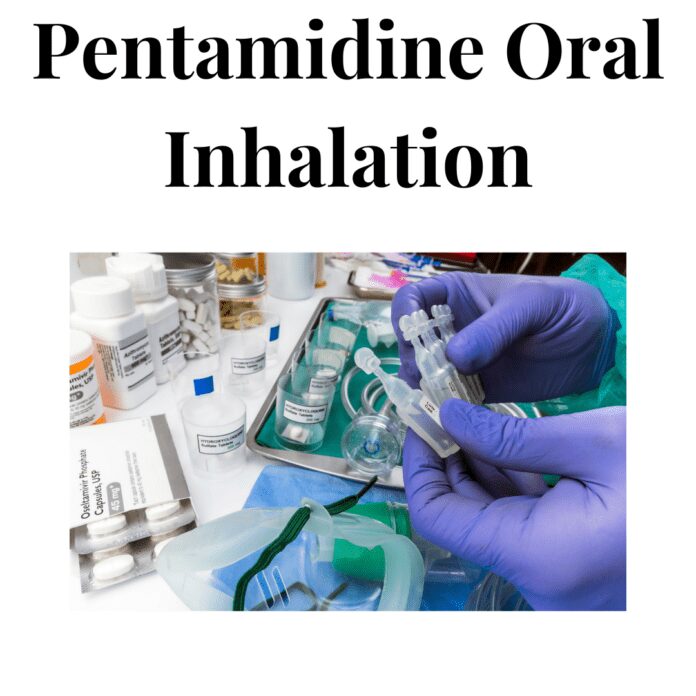Uses
Pentamidine is an anti-infective agent that helps to treat or prevent pneumonia caused by the organism Pneumocystis jiroveci (carinii).
This medication is sometimes prescribed for other uses; ask your doctor or pharmacist for more information.
Side Effects Of Pentamidine
Pentamidine may cause side effects. Tell your doctor if any of these symptoms are severe or do not go away:
- fatigue
- metallic taste
- cough
- dizziness
- burning sensation in your throat
- decreased appetite
- lightheadedness or faintness
- itching
- upset stomach
- vomiting
- night sweats or chills
If you experience any of the following symptoms, call your doctor immediately:
- chest pain
- abnormal heartbeat
- shortness of breath or difficulty breathing
- skin rash
- confusion
- slurred speech
Warnings & Precautions
Before taking pentamidine:
- tell your doctor and pharmacist if you are allergic to pentamidine or any other drugs.
- tell your doctor and pharmacist what prescription and nonprescription medications you are taking or have recently taken, especially antibiotics, amphotericin B (Fungizone), cisplatin (Platinol), foscarnet (Foscavir), and vitamins.
- tell your doctor if you have or have ever had asthma; hay fever; high or low blood pressure; diabetes; high or low blood sugar; anemia; severe skin allergic reaction; or heart, kidney, liver, or pancreatic disease.
- tell your doctor if you are pregnant, plan to become pregnant, or are breast-feeding. If you become pregnant while taking pentamidine, call your doctor.
Dosage Of Pentamidine
Pentamidine comes as a solution to be inhaled using a nebulizer. It usually is used once every 4 weeks. Inhalation of pentamidine delivers the drug directly to your lungs. Your doctor, nurse, or pharmacist will show you how to use the nebulizer. Follow the directions on your prescription label carefully, and ask your doctor or pharmacist to explain any part you do not understand. Take pentamidine exactly as directed. Do not take more or less of it or take it more often than prescribed by your doctor.
Other
Keep all appointments with your doctor and the laboratory. Your doctor will order certain lab tests to check your response to pentamidine.
You may develop a cough while using aerosol pentamidine. The cough may be more severe if you smoke or have a history of asthma. If you experience cough or difficulty breathing, call your doctor. Your doctor may suggest slowing the aerosol stream or may prescribe a bronchodilator (medication that opens the airways) to use before your pentamidine inhalation.
Do not let anyone else take your medication. Ask your pharmacist any questions you have about refilling your prescription.
It is important for you to keep a written list of all of the prescription and nonprescription (over-the-counter) medicines you are taking, as well as any products such as vitamins, minerals, or other dietary supplements. You should bring this list with you each time you visit a doctor or if you are admitted to a hospital. It is also important information to carry with you in case of emergencies.
Source
All information has been provided courtesy of MedLinePlus from the National Library of Medicine and from the FDA.



